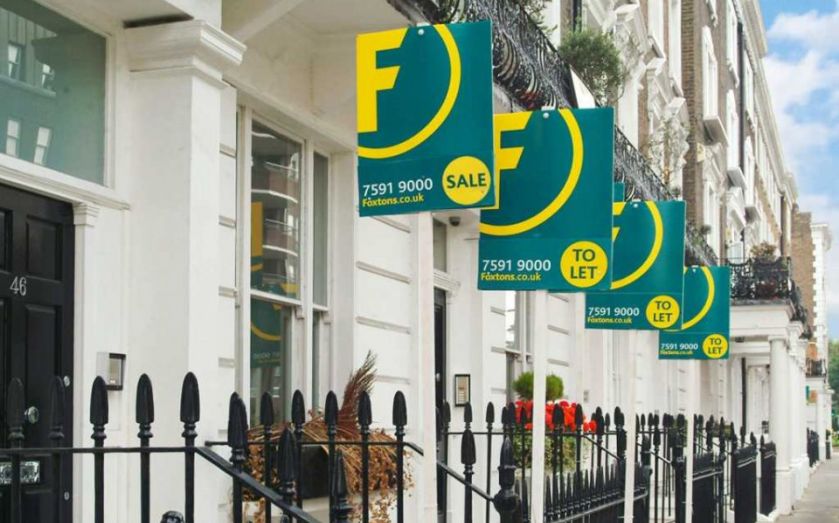London house prices: Foxtons share price dips as slowing luxury market takes its toll

The figures
Upmarket estate agent Foxtons had a topsy-turvy year in 2014, with the gradual slowing in London house price growth dragging down its share price. Earlier in the year when prices were still rising fast the skies were only blue. Chief executive Nic Budden said it best: last year was a year of "contrasting halves". The first was characterised by soaring prices. but the euphoria couldn't last.
Group revenue was up for the year to 31 December, rising 3.4 per cent to £143.9m, from £139.2m in 2013. Profit before tax was also up; it rose 8.2 per cent to come in at £42.1m. These numbers mean the company will propose a dividend of 5.16p per share (3.17p final and 1.99p special). Sales were more muted than growth, with volumes reducing 3.7 per cent due to the market coming off the boil in the second half on the year. This didn't seem to worry investors: Foxton's share price was up 2.52 per cent in early trading.
These results weren't unexpected: Foxtons warned of "property headwinds" back in October, and its shares promptly lost 20 per cent of their value.

Why it’s interesting
The property market in London was a game of two halves last year. Foxtons is particularly vulnerable to London’s caprices because its sales are centred there. The company only launched its IPO in late 2013 and last summer shares fell below their listing price.
The property market is being tugged in many directions and is in a state of flux; looking to find some sort of mid to long-term stability. That won’t be found until the gradual change in interest rates materialises, because the rock bottom base rate is keeping mortgages low. What is more, the market is still adjusting to tighter mortgage lending regulations and the changes in stamp duty.
Foxtons has noted this insecurity in the market and expects sales to remain subdued for a while. What's more, London's luxury house market is struggling. Political sparring over a mansion tax and stamp duty changes have made expensive homes less attractive, and they aren't selling well. Some 3,900 were built last year while 54,00 are planned or under construction.
What Foxtons said
Nic Budden, chief executivce, said:
The first half [of 2014] was characterised by a very strong property sales market with transactions reaching their highest levels since 2008. In the second half we saw a sharp downturn in property sales volumes, particularly in Central London.
Despite these challenging conditions in property sales markets during the second half of 2014, our centralised business model, effective expansion strategy and strong position in lettings enabled us to grow revenues and maintain high EBITDA margins.
While we expect property sales activity to remain subdued at levels comparable to those seen in late 2012 and early 2013 until greater political and economic certainty returns, the long term fundamentals of the London market remain sound and attractive.
We continue to be confident that our organic expansion strategy, together with our strong lettings business, will enable us to grow revenue and profit even in a flat property sales market. Our new branches are performing well and we are on track to open another seven this year.
In short
Foxtons' results were muted, but London won’t stay down for ever. The capital has consistently shown itself to be the strongest region in the UK, and slower price rises and the odd drop (depending on whose stats you ask) won’t change that in the long run. How the luxury market does will be of more concern.